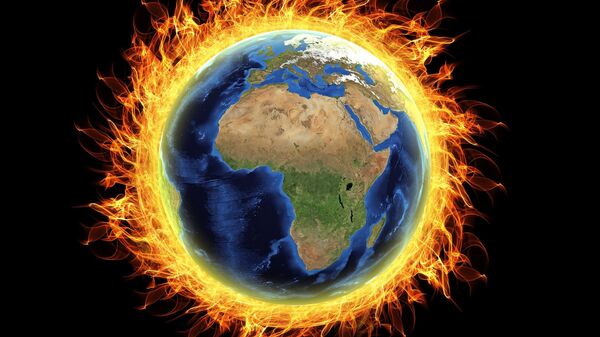"Future heat waves in particular will be more frequent, more intense and will last much longer," Yuming Guo, the study's lead researcher, said in a Tuesday statement to Reuters. "If we cannot find a way to mitigate the climate change (reduce the heat wave days) and help people adapt to heat waves, there will be a big increase of heat wave-related deaths in the future."
The researchers developed a model to predict the number of deaths caused by heatwaves in 412 communities in 20 countries on four continents between 2031 and 2080.
The study predicted mortality caused by heat waves under different scenarios that take into account levels of greenhouse gas emissions, population density and adaptation strategies.
"We estimated heat wave-mortality associations through a two-stage time series design," the report, which was published in PLOS Medicine, stated.
"Current and future daily mean temperature series were projected under four scenarios of greenhouse gas emissions from 1971 — 2099… We projected excess mortality in relation to heat waves in the future under each scenario of greenhouse gas emissions, with two assumptions for adaptation (no adaptation and hypothetical adaptation) and three scenarios of population change (high variant, median variant and low variant)."
The findings stated that the increase in mortality caused by heat waves is expected to be highest near the equator. Countries in that area are projected see a 2,000 percent increase in heat wave-related fatalities from 2031 to 2080, compared to the 1971 to 2020 span.
"If people cannot adapt to future climate change, heat wave-related excess mortality is expected to increase the most in tropical and subtropical countries/regions, while European countries and the United States will have smaller increases. The more serious the greenhouse gas emissions, the higher the heat wave-related excess mortality in the future," concluded the study.
Even if people do adapt to future climate change, heat wave-related deaths would still increase in the future under the high-variant population and serious greenhouse gas emissions situations. The projected increase in mortality is much smaller, however, than in the no-adaptation cases.
Fred Magdoff, professor emeritus of plant and soil science at the University of Vermont and co-author of "What Every Environmentalist Needs to Know About Capitalism" and "Creating an Ecological Society: Toward a Revolutionary Transformation," told Sputnik Wednesday that the increase in heat waves will not only affect poorer countries that are close to the equator, but also countries like Japan.
"Although the poor countries will have more problems with this, it also affects the north — Japan hit an all time high of 106 degrees F, and there are heat waves in Europe and the US. Clearly those in the wealthier countries are able to deal with this better, either through home air conditioning or access to ‘cooling stations,'" Magdoff told Sputnik.
"The carbon dioxide level in the atmosphere is currently about 410 ppm (it was around 320 in the 1950s), and in a relatively few decades it will reach 450, assuming current trends persist. After that, global warming may actually increase faster. Thus, I am not too surprised about the prediction for 2080 — not a pretty picture indeed. It will be awful," Magdoff added.
According to the study, adaptation strategies to reduce greenhouse gas emissions are necessary, including opening cooling centers and painting rooftops white to reflect sunlight.






